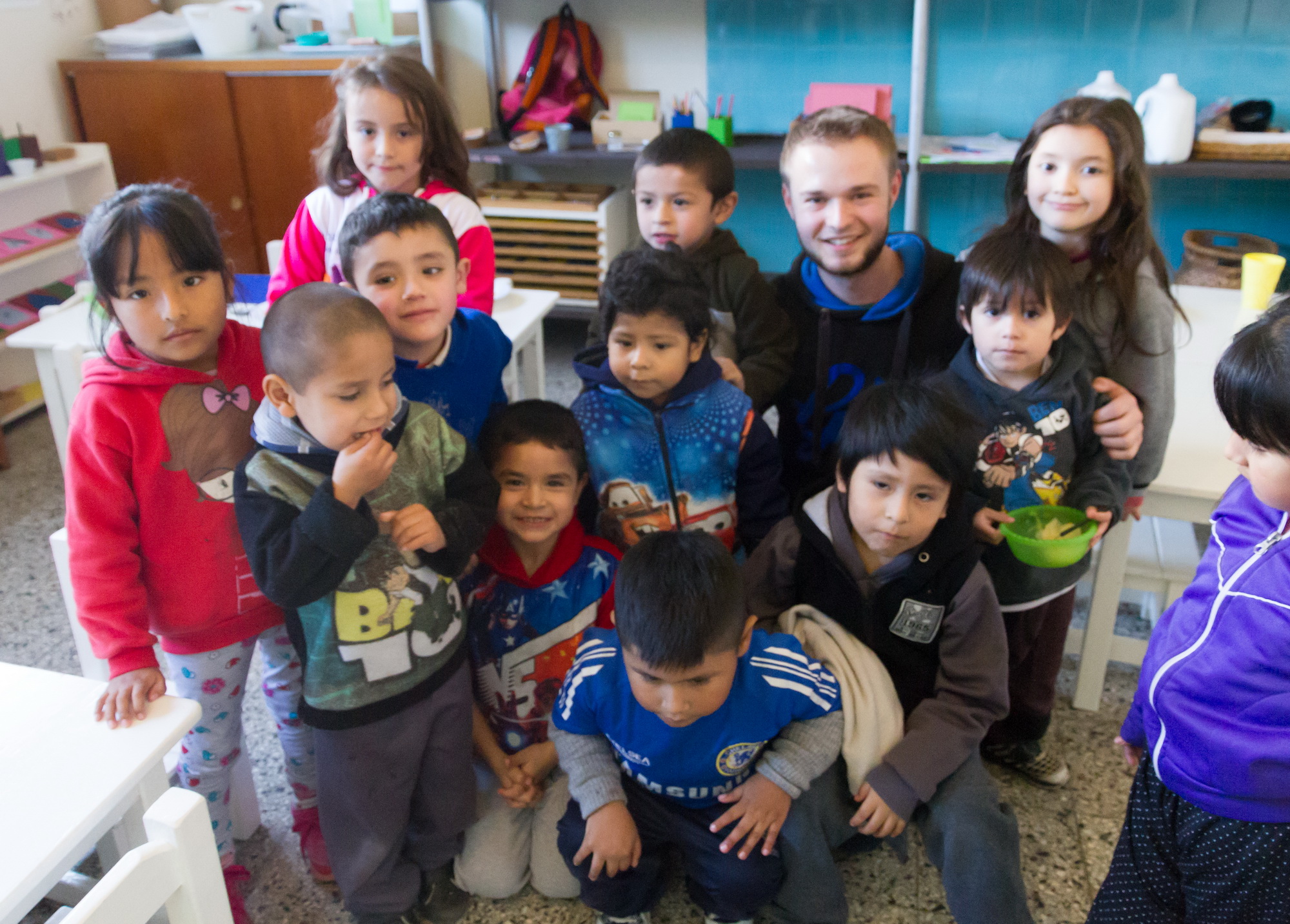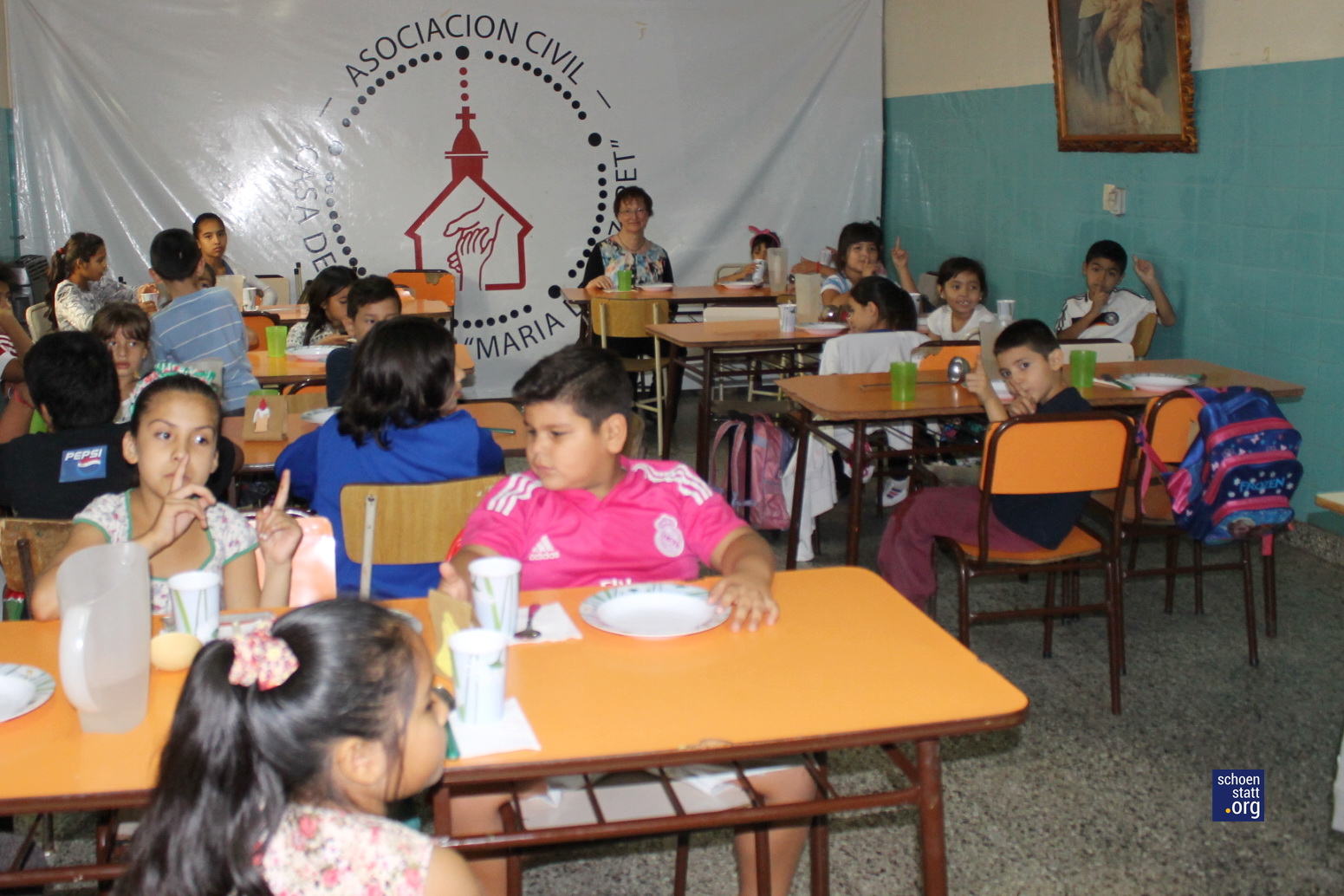The “Casa del Niño María de Nazaret” (“Mary of Nazareth” Children’s Daycare) in Villa Ballester, in the Buenos Aires’ metropolitan area, is a daycare daily serving about ninety children ages 2-14; it offers them a place to discover their potential with dignity.
The children come from families living in the low-income neighborhood of 9 de Julio adjacent to the house. The living situation there is one of poverty and marginalization, different addictions, and family and neighborhood violence.
A teaching staff specialized in the Montessori pedagogical method works at Casa del Niño. The volunteers that collaborate in the institution identify with the project, and they offer their knowledge to the children through daily activities, computer workshops, handicrafts, or art.
The main objective is for our children to discover and to develop their manual and intellectual abilities. This discovery strengthens their self-esteem and awakens their dreams and desires, which encourages them to think about a positive academic and work future for their lives.

Mission
Every child, every family that approaches our House, finds a home where they can acquire the tools they need for a more dignified and just life, where they can find their own originality and feel valued.
Motivation
The project was born in 1993, when a group from the Schoenstatt Apostolic Movement proposed to carry out social work in the area; the Diocese of San Martin provided the location. “Before there was a daycare here, but we created a structure where we can work with the entire family. We did not want to be just a place to care for children, instead we want to help their parents, so that they would generate a substantial change in their children,” Graciela Klobovs, director of Casa del Niño, explained. Here they find a safe place, of belonging, a house that offers the opportunity to discover their true potential with dignity, in order to get out of violent situations and marginalization.

How it works
The children attend from 8:30 am – 12:00 pm, during after school hours. “They have breakfast and during the morning they participate in activities. They have workshops ranging from music, physical education, art, catechesis, and yoga to carpentry: which is offered depending of the availability of volunteers. Then they have lunch, and they go to school,” relates Laura, the educational psychologist.
The classrooms are integrated, and they are divided into kindergarten (ages 2.5 – 5), intermediate (ages 6 – 10), and the older children. Teachers are trained Montessori “guides.” According to this educational methodology, environments are prepared so that the children can circulate freely, and the educational materials that the guides present to them respect their own interests.
“We always work pausing on the child’s needs and expectations” – assured Jasid. The idea is to show them through workshops how they can apply the different assignments to daily realities.”
Working side by side with a child’s relatives is key. “Along with a social worker and a psychologist, we constantly set appointments with them to offer them the opportunity to tell us what is happening, and what they need, so that we can accompany them and guide them,” Jasid affirmed.
Graciela Klobovs adds: “We have direct experience with gender-based violence and the use of drugs. We seek to reach the parents, and we have workshops on sex education, nutrition and personal hygiene among others. They value these times when they can ask and learn. Having more funds would allow us to continue to provide opportunities to a greater number of children and their families.”
Donations
are possible with Credit Card, PayPal and (from SEPA) also with Bank transfer (the form is in spanish but self-explaining)
Institution Responsible/ Contact
Asociación Civil Casa del Niño, Villa Ballester
Internet: www.casadelninomaria.org
Tel.: +54 11 4738 5512
Mail: info@casadelninomaria.org
A visit to the Casa del Niño









